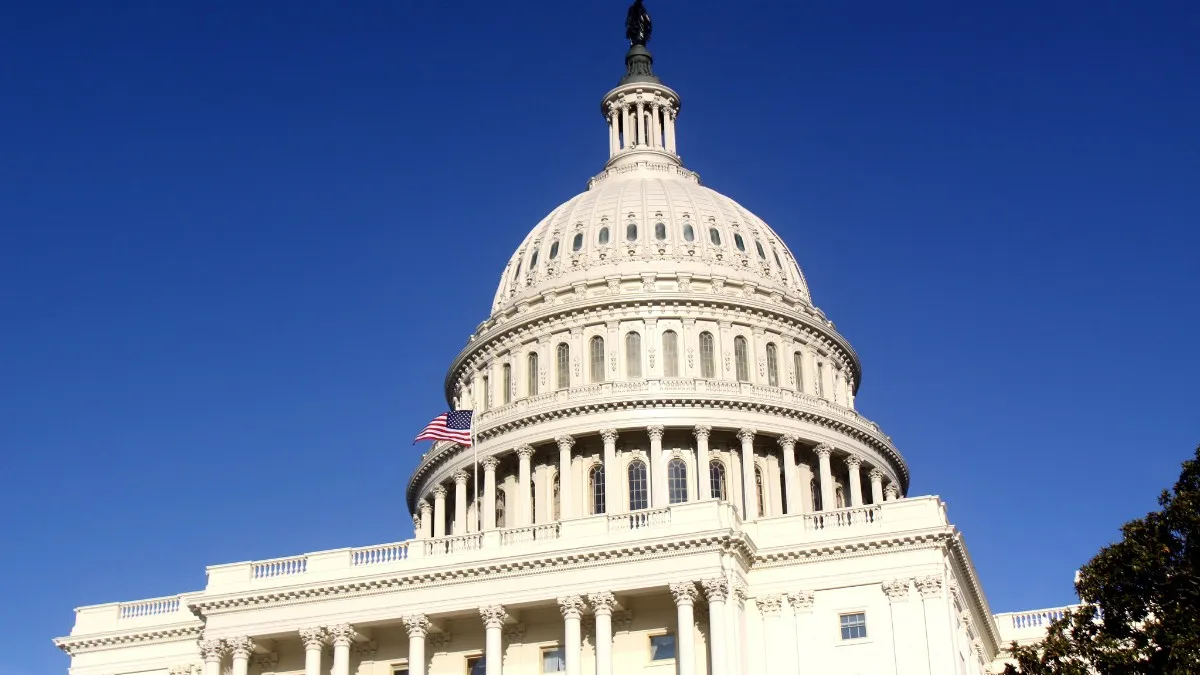Dive Brief:
- More than $1 billion in Paycheck Protection Program (PPP) funds went to borrowers who received multiple loans through the program, according to an analysis of Small Business Administration (SBA) data by Democratic staff of the Select Subcommittee on the Coronavirus Crisis. PPP forbids companies from receiving multiple loans.
- About $96.3 million in PPP funding, encompassing 613 loans, was given to borrowers who have been debarred or suspended from doing business with the federal government, the analysis found. Those borrowers are also ineligible for PPP.
- Subcommittee staff flagged more than 11,000 borrowers — recipients of nearly $3 billion in loans — for using information in PPP applications that mismatches data contained in the federal government's System for Award Management (SAM) database.
Dive Insight:
The subcommittee's analysis of PPP flaws was publicized Tuesday, ahead of a hearing with Treasury Secretary Steven Mnuchin.
"Taxpayers should not have to choose between quickly getting aid to those who need it and wasting federal funds," the panel's chairman, Rep. Jim Clyburn, D-S.C., said at the hearing, according to Reuters. "And there are simple steps that could have been taken to improve oversight and reduce fraud."
The analysis prompted Clyburn to urge SBA and Treasury Department inspectors general in a letter Tuesday to review the SBA's management of the coronavirus aid program — specifically suggesting the SBA "develop effective controls to identify and escalate potentially suspicious activity" and adjust its audit plan for PPP loans to one that accounts for risk rather than just the size of the loan. Just 65 of the 10,856 duplicate loans the subcommittee staff identified were over $2 million and thus subject to additional scrutiny under the current audit plan.
Republican staff on the panel submitted their own report Tuesday that called PPP "a resounding success" despite a rocky start that included confusion over last-minute guidance, portal access issues, fintech exclusion, allegations of bank bias toward larger loans or existing customers, and about 20 rule changes.
"Democrats should end their partisan investigation of this successful program and instead work with Republicans to extend it so more small businesses can keep their workers employed and paid," the panel's top Republican, Rep. Steve Scalise of Louisiana, said in a statement, according to Bloomberg.
Republicans on the committee said PPP has seen lower levels of fraud than other government relief programs, such as those following Hurricanes Sandy and Katrina, Reuters reported.
Between April 3 and Aug. 8, PPP infused small businesses with $525 billion in loan money, which is forgivable as long as recipients use 60% of the funds for payroll and maintain salaries and headcounts.
The subcommittee is not the first body to raise concern that the rush to approve coronavirus aid invited fraud. The Government Accountability Office (GAO) in June said the number of PPP loans approved, the speed with which they were processed, and limited safeguards left the program open to "significant risk that some fraudulent or inflated applications were approved."
Clyburn echoed that concern Tuesday. "The Subcommittee's analysis shows that PPP helped millions of small businesses and non-profit organizations stay afloat during the coronavirus crisis, but a lack of oversight and accountability from SBA and Treasury may have led to billions of dollars being diverted to fraud, waste, and abuse, rather than reaching small businesses truly in need," he wrote in his letter.
In addition to finding duplicate loans and debarred recipients, subcommittee staff saw that SBA approved 353 PPP loans, worth about $195 million total, to government contractors previously flagged by the federal government for performance or integrity issues.
The analysis also indicated the agencies approved hundreds of loan applications that were missing the borrower's identifying information, such as names and addresses.
"Although legitimate explanations may exist for differing addresses, the inconsistency raises numerous concerns, including potential corporate identity theft, companies trying to obtain multiple loans, or companies attempting to skirt PPP eligibility requirements," the report said, according to Bloomberg.
Past data probes had also found application information to be lacking. When the SBA in July disclosed its list of recipients of loans greater than $150,000, a Bloomberg analysis found more than 554,000 applications listed zero in the application’s "jobs retained" field. The field was blank for another 324,122. Another data field — congressional district — was listed incorrectly for roughly 226,000 borrowers, The Washington Post found.
About 30 Democratic lawmakers laid out a number of "grave concerns" about PPP data errors in a letter to the SBA that month, asking the agency to "rectify these issues promptly."
Bank of America also asked the SBA to pull the data it released, correct it and re-issue it, a source told Reuters.
The SBA and Treasury didn't respond to Tuesday's reports.
"We are working with SBA," Mnuchin said, according to Bloomberg. "It is their primary responsibility. They are standing up a detailed audit program."











